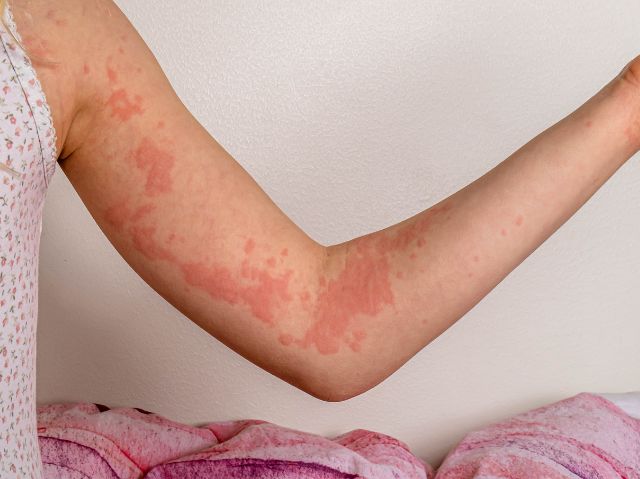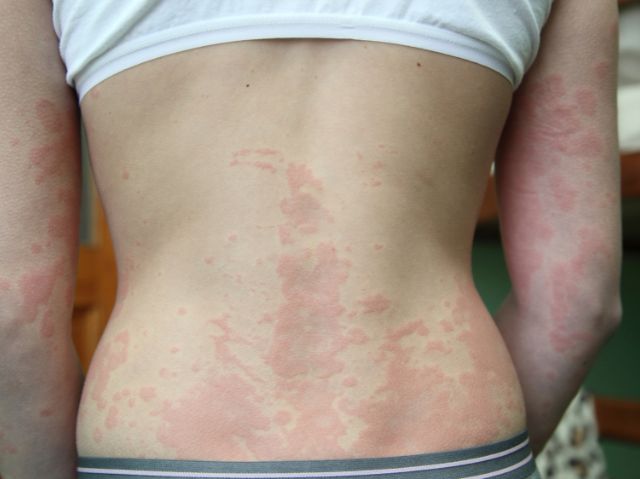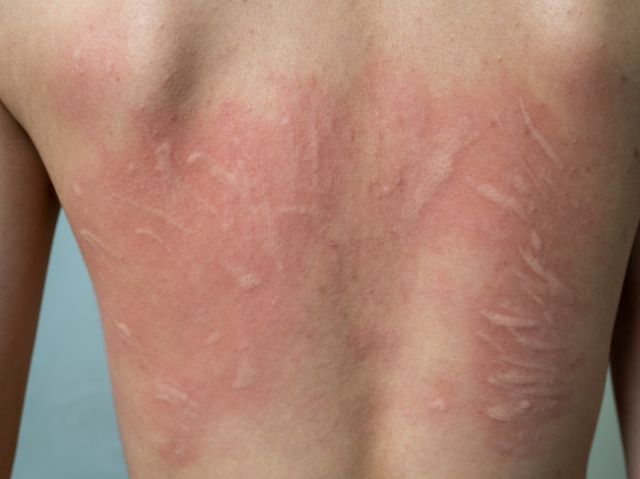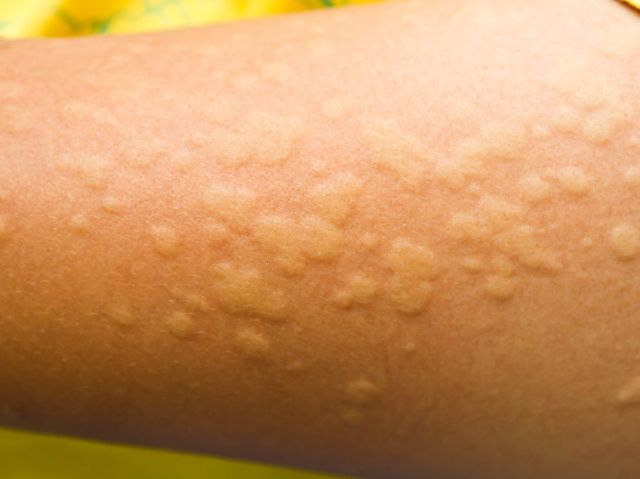Urticaria: Understanding Causes, Symptoms, and Treatment Options
Urticaria, commonly known as hives, is a skin condition characterized by raised, red, and itchy welts on the skin.
These welts can vary in size and shape, and they often appear suddenly. The condition can be acute or chronic, with symptoms lasting for a few hours to several weeks.


Symptoms of Urticaria
- Raised Welts: The most apparent symptom is the presence of raised welts on the skin. These welts can be red or skin-colored and have clearly defined borders.
- Itching: The affected areas are typically accompanied by intense itching, making it tempting to scratch. However, scratching can worsen the condition and may lead to the development of more hives and secondary infection
- Swelling: Swelling, known as angioedema, can occur in the deeper layers of the skin. This may affect the face, lips, or other parts of the body.
- Variable Size and Shape: Hives can range in size from small spots to large welts and may merge to form larger areas of swelling.
Causes of Urticaria
- Allergies: Allergic reactions to certain foods, medications, insect stings, or environmental factors can trigger urticaria.
- Autoimmune Disorders: Conditions where the immune system mistakenly attacks healthy cells can lead to chronic urticaria.
- Infections: Viral or bacterial infections, such as the common cold or urinary tract infections, can sometimes result in hives.
- Stress: Emotional stress or tension can be a significant factor, contributing to the onset or exacerbation of urticaria.
- Physical Stimuli: Exposure to certain physical stimuli like pressure, cold, heat, or sunlight can induce hives in some individuals.


Treatments for Urticaria
- Antihistamines: These medications help reduce itching and inflammation by blocking the effects of histamine, a chemical released during allergic reactions.
- Corticosteroids: In severe cases, oral or injected corticosteroids may be prescribed to quickly alleviate symptoms.
- Avoiding Triggers: Identifying and avoiding triggers, such as specific foods, medications, or environmental factors, can help prevent recurrent episodes.
- Stress Management: Incorporating stress-reducing techniques like yoga, meditation, or deep breathing exercises can be beneficial for those whose urticaria is triggered by stress.
- Immunosuppressants: In cases of chronic urticaria related to autoimmune disorders, immunosuppressive medications may be recommended.
Dr. Aparna - Best Dermatologist in Hyderabad
For individuals seeking expert care for urticaria in Hyderabad, Dr. Aparna is a renowned dermatologist known for her expertise and compassionate approach. With extensive experience in managing various skin conditions, including urticaria, Dr. Aparna provides personalized treatment plans tailored to each patient’s needs. Her commitment to staying abreast of the latest developments in dermatology ensures that her patients receive the highest standard of care.
If you’re experiencing symptoms of urticaria or any other skin-related concerns, scheduling a consultation with Dr. Aparna can be a crucial step towards effective management and relief.


